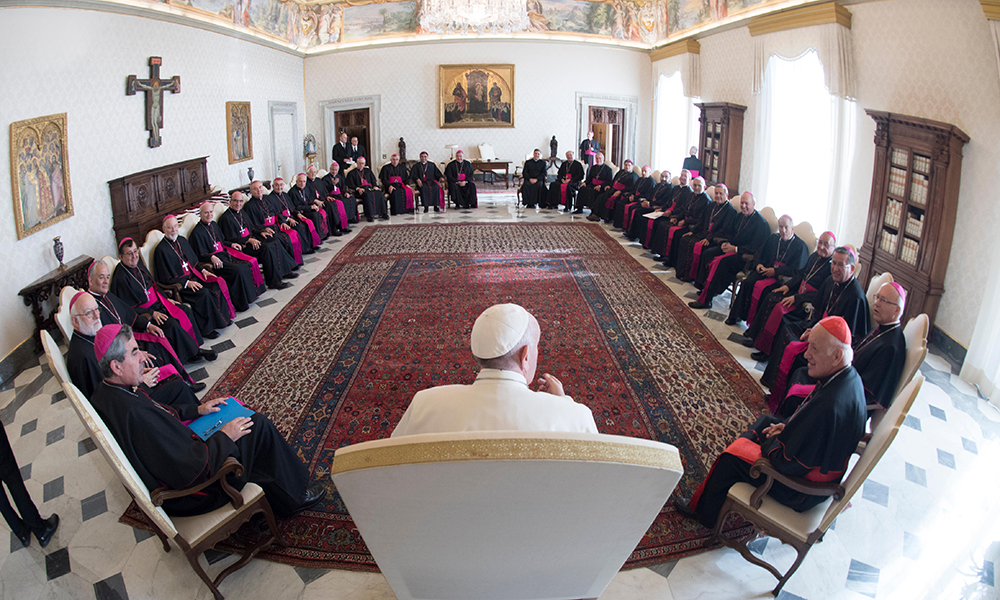You must keep in mind the distinction between the Church’s “extraordinary” magisterium and her “ordinary” magisterium. A dogma is a teaching solemnly defined by the pope in the exercise of the “extraordinary” magisterium. The Second Vatican Council taught that our Lord Jesus Christ endowed His Church with infallibility “in defining doctrine pertaining to faith and morals” (Lumen Gentium, Dogmatic Constitution on the Church, No. 25). The pope “enjoys this infallibility in virtue of his office, when, as supreme shepherd and teacher of all the faithful … by a definitive act he proclaims a doctrine of faith or morals.”
A doctrine not solemnly defined, but taught by the pope and the bishops, comes to us through the “ordinary” magisterium. When the bishops, in communion with the pope, teach in matters concerning faith and morals, the faithful must adhere to that teaching with a ready and respectful allegiance of mind.
Then the Vatican fathers added, “This religious submission of mind and will must be shown in a special way to the authentic magisterium of the Roman Pontiff, even when he is not speaking ex cathedra.” In other words, his teaching regarding faith and morals must be “acknowledged with reverence,” and the faithful must sincerely adhere to decisions made by him (again, see Lumen Gentium, No. 25). We Catholics are bound — indeed, are privileged — to submit to the teaching both of the “extraordinary” magisterium and the “ordinary” magisterium.

